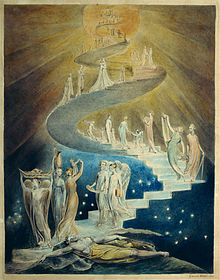Vincent Ostrom
Appearance
Vincent A. Ostrom (September 25, 1919 – June 29, 2012) was an American political scientist, known as the Founding Director of the Workshop in Political Theory and Policy Analysis, based at Indiana University. He and his wife, the economist Elinor Ostrom, made numerous contributions to the field of political science.
| This scientist article is a stub. You can help out with Wikiquote by expanding it! |
Quotes
[edit]
- I cannot claim to have had any direct personal divine inspiration. Yet coping with multitudinous problem-solving efforts and observing the world in which I live evokes an openness to a mystery of being that I cannot deny. Critical reflection leads me to believe than an awareness of such mysteries is a necessity in the constitution of order in democratic societies. If religion is a necessity in the conceptualization of paradigmatically diverse formulations, religion might be viewed as a necessary element in a system of knowledge pertaining to the constitution of order. We do, however, face the problem of those system of order that were constituted under circumstances of explicitly rejecting religion as a necessary feature in their constitution. We have the potential, then, of those who reject religion becoming the prophets of new secular religions. What we call "ideologies" may be the source of that most profound pathologies in human personal and social disorders.
- Vincent Ostrom. 1997. The Meaning of Democracy and the Vulnerability of Democracies: A Response to Tocqueville's Challenge. University of Michigan Press. p. 179
- Wilson's analytical theory assumed that the natural and inevitable tendency in any system of government is to have recourse to some sovereign body that will exercise "ultimate supremacy" and have the last say in making collective decisions. It is in this sense that we speak of a government as have a monopoly over the legitimate exercise of authority and use of force in society. Indeed, much of contemporary political science is based on this presumption.
- Vincent Ostrom (2008), The Intellectual Crisis in American Public Administration, p. 87; Cited in: "Vincent Ostrom on Woodrow Wilson and Political Monism" at discoursesonliberty.blogspot.nl, 2012/04
- The tensions inherent in the work of the scientific community are, however, exceptionally high because belief is potentially contestable. Inquiry in the scientific tradition represents, then, a challenge to every form of orthodoxy. Further, there is a danger that scientific investigators may abandon modesty, presume to know the Truth, and create their own form of orthodoxy, while engaging in sweeping rejections of other forms of belief and failing to pursue the merit of the arguments that may be at issue. Dogmas advanced in the name of science are no less dogmatic than other dogmas. Efforts to destroy or silence others is a manifestation of dominance strategies that are repugnant to polycentricty in scientific communities. A repudation of religion, as such, fails to indicate an appreaciation of those who teach that nature is the creation of a trascendent order. The study of nature as God's creation can provide scientific investigators with an appreciation for the existence of an order that gives coherence to all other forms of order. This is consistent with a presumption that a universe exists. Science as a polycentric order depends, then, upon an autonomous pursuit of inquiry that requires a reciprocal respect for the autonomy of others.
- Ostrom. 2014. Choice, Rules and Collective Action: The Ostrom's on the Study of Institutions and Governance. ECPR Press. Chapter 2: Polycentricty: The Structural Basis of Self-Governing Systems. p. 52

